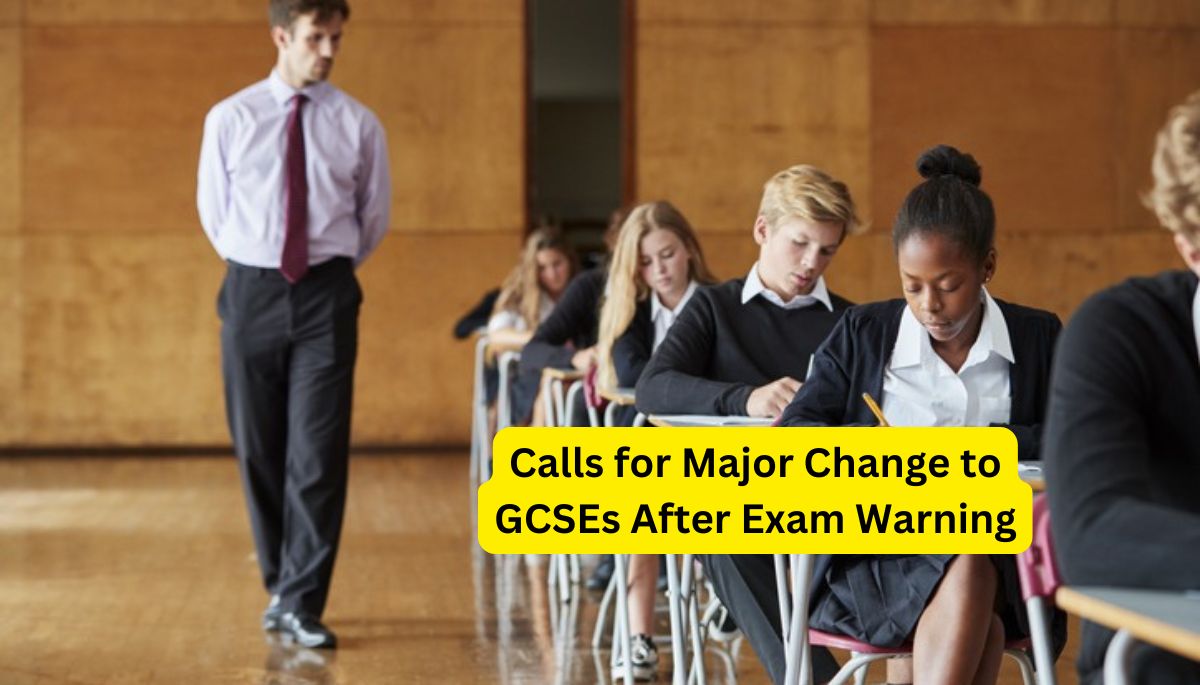
Calls for Major Change to GCSEs After Exam Warning
In recent months, the education sector has been abuzz with discussions about the future of GCSEs (General Certificate of Secondary Education) in the UK. This heightened attention comes in the wake of a significant warning issued by the OCR exam board regarding the current state of GCSEs. The call for reform has sparked a nationwide debate on how to improve the examination system to better serve students and the educational community.Calls for Major Change to GCSEs After Exam Warning
The Latest Warning from the OCR Exam Board
The OCR exam board, one of the leading examination boards in the UK, has raised concerns about the current GCSE system. According to recent reports, the board has issued a stark warning about the need for substantial changes to ensure that GCSEs remain relevant and fair for all students. The warning highlights several issues, including the potential for grade inflation, inconsistencies in assessment standards, and the pressure placed on students during exams.
This warning has not only caught the attention of educators and policymakers but also the public, leading to widespread discussions about the future of GCSEs and the necessary reforms.
Why the Current GCSE System is Under Scrutiny
The scrutiny of the GCSE system is not new, but recent developments have brought the issue to the forefront. Critics argue that the current system is outdated and does not adequately reflect the diverse capabilities and learning styles of students. The emphasis on high-stakes exams and the pressure to perform well in a limited timeframe can be detrimental to students’ mental health and overall well-being.
Moreover, there are concerns about the fairness of the grading system and the impact of grade inflation on the value of GCSE qualifications. As more students achieve high grades, the distinction between different levels of achievement becomes less clear, potentially undermining the credibility of the qualification.
Calls for Reform What Changes Are Being Suggested?
In light of the OCR’s warning, there have been numerous calls for reforming the GCSE system. These calls come from various stakeholders, including educators, policymakers, and advocacy groups. Some of the key suggestions for reform include:
1. Revising the Assessment Format
One of the major criticisms of the current GCSE system is the reliance on final exams. Many argue that this approach does not adequately assess students’ understanding and capabilities. There are calls to incorporate more continuous assessment methods, such as coursework and project-based evaluations, to provide a more comprehensive picture of a student’s abilities.
2. Addressing Grade Inflation
Grade inflation has been a concern for several years, with an increasing number of students achieving top grades. To address this issue, there are suggestions to review and revise the grading criteria and ensure that they accurately reflect students’ performance. This could involve recalibrating grade boundaries and implementing more rigorous moderation processes.
3. Reducing Exam Pressure
The intense pressure associated with GCSE exams can have negative effects on students’ mental health. There are calls to reduce the emphasis on high-stakes exams and explore alternative ways to assess students’ knowledge and skills. This could involve spreading assessments over time and incorporating more varied assessment methods.
4. Enhancing Support for Students
Reforming the GCSE system also involves providing better support for students throughout their academic journey. This includes offering additional resources, support services, and guidance to help students prepare for their exams and manage their stress levels effectively.
The Role of Educators and Policymakers in Driving Change
Educators and policymakers play a crucial role in driving changes to the GCSE system. Their insights and experiences provide valuable input into the reform process, helping to ensure that any changes address the real needs and challenges faced by students and schools.
Educators’ Perspectives
Teachers and school leaders are at the forefront of the education system and have firsthand experience with the challenges of the current GCSE system. Their feedback is essential in identifying areas for improvement and developing effective solutions. Many educators advocate for reforms that focus on reducing exam-related stress, enhancing assessment methods, and providing additional support for students.
Policymakers’ Involvement
Policymakers are responsible for implementing changes to the education system and ensuring that reforms are carried out effectively. Their role involves reviewing recommendations from educators and other stakeholders, assessing the feasibility of proposed changes, and allocating resources to support the implementation of reforms.
The Impact of Potential Reforms on Students and Schools
Potential reforms to the GCSE system could have a significant impact on students and schools. For students, the introduction of more diverse assessment methods and reduced exam pressure could lead to a more balanced and supportive learning environment. This, in turn, could improve students’ overall well-being and academic performance.
For schools, reforms could necessitate adjustments to teaching practices and assessment strategies. Schools would need to adapt to new assessment formats and ensure that their staff are equipped to support students through the transition.
The Future of GCSEs
As discussions about GCSE reform continue, it is important to consider the future of this vital qualification. The goal of any reform should be to create a system that accurately assesses students’ abilities, supports their learning, and provides a fair and credible qualification.
The path forward will require collaboration between educators, policymakers, students, and other stakeholders. By working together, it is possible to develop a GCSE system that better meets the needs of all students and ensures that the qualification remains a valuable and respected credential.
Conclusion
The recent warning from the OCR exam board has underscored the need for major changes to the GCSE system. With calls for reform gaining momentum, it is clear that the current system faces significant challenges that need to be addressed. By exploring new assessment methods, tackling grade inflation, and reducing exam pressure, it is possible to create a more effective and supportive GCSE system.
The involvement of educators and policymakers will be crucial in driving these changes and ensuring that the reforms are implemented successfully. As the debate continues, the focus should remain on creating a GCSE system that truly serves the needs of students and reflects their diverse capabilities. The future of GCSEs depends on the ability to adapt and evolve, ensuring that this important qualification continues to provide value and opportunities for students across the UK.





